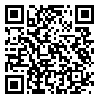BibTeX | RIS | EndNote | Medlars | ProCite | Reference Manager | RefWorks
Send citation to:
URL: http://jdisabilstud.org/article-1-2982-en.html
2- Assistant Professor, Department of Psychology, Malayer Branch, Islamic Azad University, Malayer, Iran
Abstract
Background & Objectives: Generalized anxiety disorder is the most common disorder among adolescents and young adults. Children and adolescents suffering from the symptoms of anxiety disorders also show a range of social problems, including social adjustment. This maladjustment results in anti–social and moral deviations, and a decline in cultural values in the person in addition to causing problems in social relationships and relationships with others (family, teachers, friends, relatives, and surrounding environment). Several psychological interventions have been implemented on people with generalized anxiety disorder, such as cognitive behavioral therapy (CBT) and unified transdiagnostic treatment, which have a different and practical look at mental disorders and behavioral problems. Hence, the present study aims to compare the effects of CBT and unified transdiagnostic treatment on the social adjustment of adolescents with generalized anxiety disorder.
Methods: The method of the present study was quasi–experimental with a pretest–posttest and a 2–month follow–up design with a control group. The statistical population included all adolescents referred to counseling centers in Khorramabad City, Iran. A total of 45 eligible adolescents were included in the study using a convenience sampling method and were randomly divided into two intervention groups and one control group (15 people in each group). The first and second intervention groups received 12 sessions (two sessions per week and each session lasted for 60–70 minutes) of CBT and unified transdiagnostic treatment, respectively. However, the control group did not receive any intervention. The data collection tool was the Social Adjustment Subscale in the Adjustment Inventory for School Students (AISS) (Sinha and Singh, 1993). Data were analyzed using descriptive statistics (including frequency indices, mean and standard deviation) and inferential statistics (including analysis of variance with repeated measurements and Bonferroni post hoc test) in SPSS– 25 at a significance level of 0.05.
Results: The results revealed that the variance analysis of social adjustment was significant in terms of time effect (p<0.001), group effect (p<0.001), and interaction effect of time and group (p<0.001). CBT (p<0.001) and unified transdiagnostic treatment (p<0.001) were effective in improving social adjustment. However, no significant difference was observed in the experimental groups (p=1.000). In the two experimental groups, there was a significant difference in the average scores of social adjustment between the pretest and posttest (p<0.001) and between the pretest and follow–up (p<0.001) stages. However, no significant difference was observed between the posttest and follow–up stages, which indicated the continued effectiveness of the interventions in the follow–up stage (p=0.667).
Conclusion: Both intervention methods, including CBT and unified transdiagnostic treatment, improved the social adjustment of adolescents with generalized anxiety disorder. Thus, clinical psychologists and child and adolescent therapists, and other specialists can use these two intervention methods to increase the social adjustment of adolescents with generalized anxiety disorder.
| Rights and permissions | |
 |
This work is licensed under a Creative Commons Attribution-NonCommercial 4.0 International License. |




